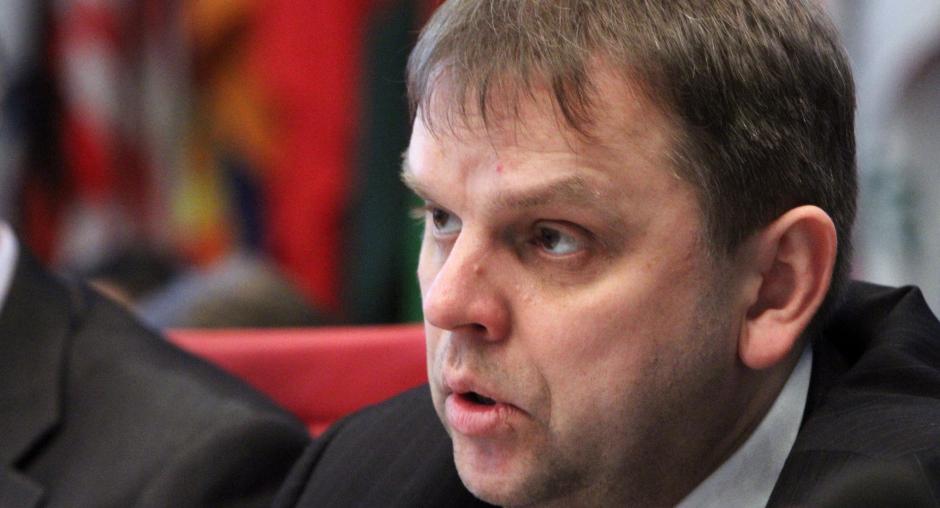Vilnius Ministerial Council an opportunity to set clear course for security of OSCE region, says Lithuanian Chairmanship

VIENNA, 18 November 2011 – The forthcoming Ministerial Council in Vilnius offers OSCE States the chance to consolidate progress and chart a way forward to address urgent security matters in the region, said Ambassador Rytis Paulauskas, the Head of the Lithuanian OSCE Chairmanship Task Force, at a reinforced Permanent Council session in Vienna today.
The reinforced Permanent Council, which brings in experts from participating States’ capitals to discuss important matters, was held to discuss the decisions to be taken by OSCE Foreign Ministers at the Vilnius Ministerial Council, which will be held on 6 and 7 December.
“The forthcoming Ministerial Council in Vilnius offers us an opportunity to mark the progress we have made together and to set a clear course for the OSCE’s future. The OSCE Chairperson-in-Office, Lithuanian Foreign Minister Audronius Ažubalis, is actively engaged in making the Ministerial Council a success, and he looks forward to personally welcoming the OSCE Foreign Ministers in Vilnius. With this in mind, we hope that the Ministerial Council’s outcome will reflect the constructive approach the participating States have displayed throughout the year,” said Paulauskas.
Paulauskas outlined the progress achieved during Lithuania’s Chairmanship this year, and urged the participating States to continue taking a constructive approach towards issues high on the OSCE agenda, including resolving protracted conflicts, combating transnational threats and enhancing engagement with Partner countries including Afghanistan and states in North Africa.
He emphasized that the Lithuanian Chairmanship places particular importance on taking decisions in the human dimension of the OSCE’s work, including on media freedom and security of journalists, and looks forward to a positive debate on the application of Mongolia, an OSCE Partner, to become an OSCE participating State.
He also noted that a conference with non-governmental organizations from the Mediterranean Partner countries focusing on electoral practices, the rule of law and role of the civil society would be held alongside a forum for NGOs from OSCE States in Vilnius on 4 and 5 December, ahead of the Ministerial Council.
“Last year in Astana, our political leadership acknowledged that the security of the OSCE area is ‘inextricably linked’ with the security of neighbouring regions, in particular in Asia and the Mediterranean. The events of 2011 have underscored the wisdom of those words,” said Paulauskas.
